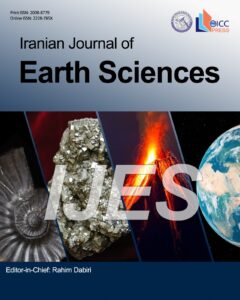Evaluation and assessment of water and surficial sediments quality in Kebir-Rhumel Wadi, NE Algeria
Authors
Abstract
This study is to investigate the physico-chemical parameters and trace metal’s concentrations (Cd, Pb, Cu, and Zn) in water and surficial sediments (0-5 cm) samples in the Kebir-Rhumel Wadi, north-eastern Algeria. Trace metal concentrations was determined using flame atomic absorption spectroscopy. The mean values of the physico-chemical parameters of the Wadi water samples are consistently above than thresholds of the Algerian standard. The comprehensive pollution index (CPI) varied from 1.46 to 3.90, indicating that the Wadi water was classified from polluted to seriously polluted. The eutrophication index (EIs) were above the unity, signifying that the eutrophication is serious, except for sites S1, S7, and S8. Metals was not detected in water samples. However, the metallic concentrations in the sediment were higher than background levels. The average geo-accumulation index (Igeo) revealed an order of trace metal contamination of the Kebir-Rhumel Wadi sediments: Pb>Cd>Zn>Cu. The contamination factor (CFs) of studied metals indicated a highly contaminated nature of sediments, whereas the Cd values indicated moderate contamination, considerable contamination with Pb and low contamination with Cu and Zn. The pollution load index (PLIs) were above the unity (1), displaying an advanced decline of the sediment’s quality. Potential ecological risk index of trace metals were changed as follows: Cd>Pb>Cu>Zn. Cadmium was of highly potential ecological risk to the ecological environment and prominently contribute to potential toxicity response.



